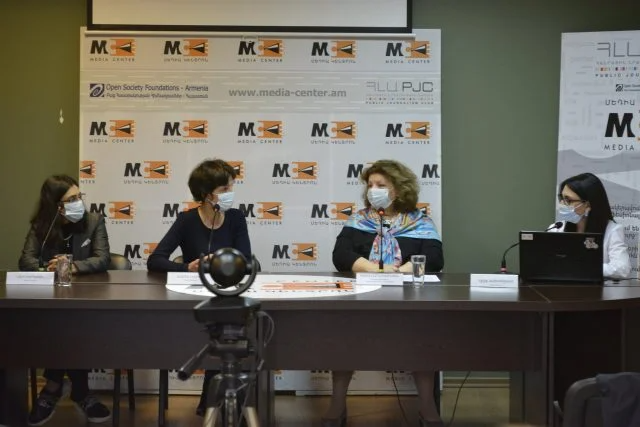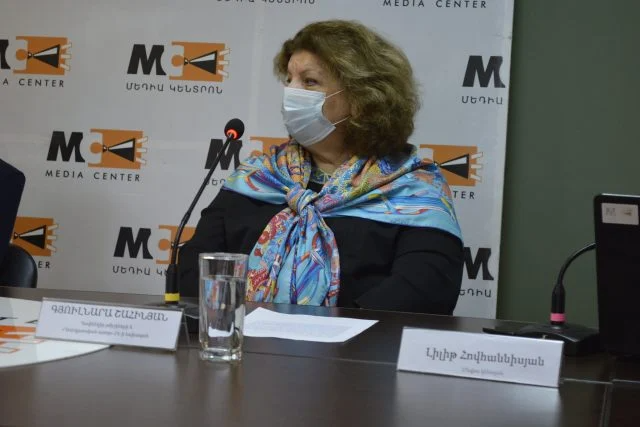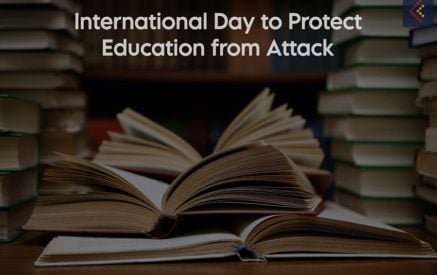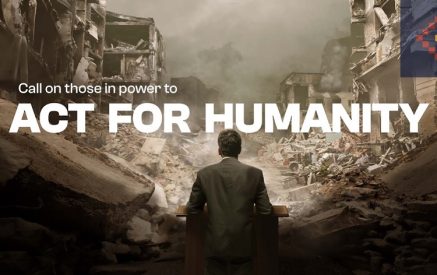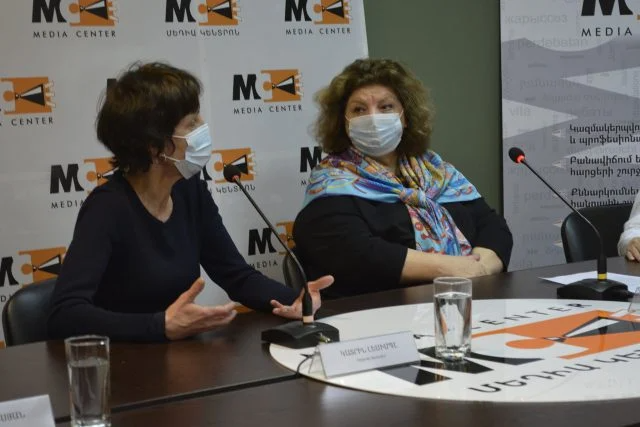There were nine winners of the International Prize for Young Women for Peace and Human Rights this year. The prize was awarded to female doctors who contributed to saving lives in Artsakh during the 44-Day War, as well as doctors who served in Armenia.
During a press conference at the Media Center, the chair of the Democracy Today NGO Gulnara Shahinian said, “Doctors displayed indescribable courage, extraordinary dedication, and high levels of professionalism during the coronavirus pandemic and the war. That is why we decided to present the award to young female doctors.”
Gulnara Shahinian expressed sadness over the fact that we have witnessed militarization and authoritarianism, so the goal in creating such an initiative was to defend equality and peace. She said that two books have been published to ensure that the voices of people working in the field are heard.
Read also
Gulnara Shahinian said that the entire staff at the Stepanakert Hospital won an award, as well as Diasporan doctor Maria Azizyan, who is currently in Boston but worked at the National Burn Center during the war. Another female doctor from the Diaspora, Dr. Ayrumyan, was also given an award. She is currently in Irkutsk. The other winner was Rose Mbone from Kenya. She was only 10 years old when she was taken to be a child soldier. She was able to escape and establish her company in the future. Now, she defends young boys who were forced to fight in war in the same manner.
During the press conference, the International Prize for Young Women for Peace and Human Rights prize-winning doctors spoke about their experiences.
Catherine Lesimple is a French doctor. This is her fourth year working in Gyumri, Armenia with the residents of Ashotsk’s villages. She said, “Many people lost their sons and husbands during the war, and I visit those people in those villages every week. They are depressed and they don’t want to live anymore. The first thing they tell me is that I give them life. As a clinical psychologist, I must find ways to make those people want to live so that their depression does not get worse. In one family, a woman lost her son during the war, her son had two small children, and her daughter-in-law is in a bad state. I noticed that the mother and widow are only a little happy when they see the children. I play with the children to show them that life is developing.”
Nare Sargsyan, a doctor from Artsakh, said that the 44-Day War was difficult for her, and explained, “It was very difficult to work and see soldiers or wounded whom it was impossible to help while knowing that some family was going to experience a loss. Seeing the terrible injuries made us realize what was happening at the frontlines. It was very difficult. It gave me strength to see soldiers who went from sitting at school desks to fighting in war in inhumane conditions in the 21st century. When I think about it now, I find myself in a worse mental state than I was for those 44 days.”
Tatev Harutyunyan


















































